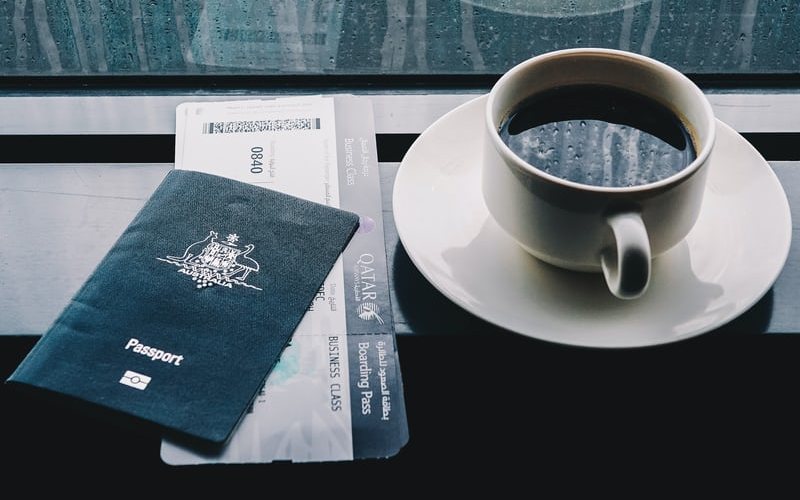While there is little concrete data as to how many Aussies live overseas, PricewaterhouseCoopers (PwC) places the Australian diaspora at more than one million people:
- Up to half a million are situated to North America, with concentrations in Western Canada, California, and New York.
- Up to 200,000 are located in Asia, with concentrations in Malaysia, Singapore, and China.
- An additional 200,000 are also thought to be in Europe, with a heavy concentration in the United Kingdom.
PwC also estimates half the diaspora returns home within five years. Despite this, that means one million Australian citizens would have presumably had to deal with closing bank accounts, university fees (HELP, formerly HECS), superannuation, tax declarations, property, investments, and other loose ends.
Like a clingy ex-partner, Australia misses you and doesn’t want you to leave so easily! Especially the Australian Tax Office (ATO). There’s a few boxes to tick before you go, whether that’s just for a year or so, or for a more permanent scenario. So, whether you’re looking at being a ski bum in Canada, or moving to France to chase a life of love and baguettes, it’s important you get these ducks in order.
Moving Overseas Financial Checklist - Bank Accounts, HELP, Super, Tax and More
Sorting out your financials and where to live in your host country is only half the equation. One friend who moved to Canada and is now a permanent resident there told me it was a little onerous dealing with finances back in Australia.
“When I filed my last Australian tax return, the ATO contacted me to ask me to explain my situation. I think I just said I was employed in Canada until further notice and I had resigned from my job in Brisbane and wasn’t receiving any other income from Australia,” they said.
“My super is still there; my HECS is still there. If I earn above the Australian threshold for HECS in Canadian dollars, they may request repayments, but it appears very loosely enforced and I haven’t earned that much anyway.
“The main challenges would probably be if I held Australian shares and property, and also earned a lot of money in Canada, they might notice me again.”
So, without further ado, here’s what you need to address before going overseas:
Bank Accounts & Transferring Money
Bank accounts are probably the easiest bit in the ‘moving overseas' equation. It can be handy to at least hang on to one bank account for tax purposes in Australia, while you get adjusted to new life in your new country. Banks might also require you to update your tax residency status, so they know what’s up - this is usually easily updated in the online portal or app, which may require access to your Australian phone number.
It can also be handy to ensure the one bank account you leave open in Australia has no monthly fees. Some banks still charge a monthly fee if you’re not depositing a certain amount every month. It’s also handy to have this bank account linked to your MyGov/ATO portal in case you get a tax refund or need to pay taxes (including uni fees) in Australia.
Transferring money overseas, or international money transfers (IMTs), also used to be costly, but now there are pretty cheap operators in the market. Brands such as OFX and Transferwise offer competitive IMTs, and may be cheaper than traditional providers and big banks. As always, compare not only the fees, but the exchange rates they offer, as these can add up in the long run.
Additionally, while you’re getting settled overseas, it can be handy to get an Australian debit card with no foreign transaction fees. This enables you to shop like a local while you find your feet and sort out a local bank account. If you’re only going overseas for a short while - say for a uni exchange - this might also be a more convenient option than opening a bank account in your host country.
Income Tax
If you’re moving overseas and still retaining Australian residency, you might be wondering what happens to your income tax. Long story short, if you remain an Australian resident (for tax purposes) you must lodge an Australian tax return, while also declaring:
- All foreign employment income.
- Any exempt income even if tax was withheld in the country where you earned it.
You can manage this overseas via the MyGov account linked to the ATO. There you can prepare and lodge your tax return, check your super, and manage contact details and other obligations. Most times you’ll need access to your Australian phone number to actually log in to MyGov with a security code that's messaged to you (more on phone numbers later).
Reciprocal Tax Agreements & Treaties
Also known as a ‘tax convention’ or 'double tax agreement’, treaties are agreements between two countries or jurisdictions that prevent the double taxation of your hard earned money. That means, for example, if you’re earning money in Italy, the Australian taxman won’t come knocking as well.
Australia has tax treaties in place with upwards of 40 nations, anywhere from Argentina to Vietnam. Many popular destinations are also on the list, including New Zealand, Canada, the United Kingdom, the United States, Germany, France, Ireland and so on.
HELP and Uni Fees
You’ll need to keep paying your uni or TAFE debt off if you are over the income threshold, even if you live overseas. Both overseas and Australian income counts. The ATO says if you intend to move and live overseas for more than six months in any 12-month period, you’re required to:
- Update your contact details
- Submit an overseas travel notification within seven days of leaving Australia
- Report your worldwide income or non-lodgment advice (if you don’t have income to report).
If you’re under the threshold, you still need to declare but won’t need to pay the loan. From there, you’ll know what you owe on your debt. This applies to HELP (HECS), VET Students and Trade Support loans. So whether you’re in uni or TAFE, if you head overseas your debt stays with you. It is also indexed each year at inflation levels until it’s paid off.
So this means that even if you’re just looking to escape to Canada to be a ski bum at Whistler for six months, you’ll need to inform the ATO. If your income (in Australian dollars) exceeds the compulsory repayment threshold, you’ll also need to keep paying off your loan.
Superannuation
Like baked-on grease on an old pan, superannuation is arguably the hardest thing to unstick when you leave the country. If you’re an Australian citizen or resident heading overseas, your super remains subject to the same rules. This is the case even if you’re leaving the country permanently.
Your super will remain within your fund until you reach preservation age (for most people this is age 60), with burdensome penalties and taxes if you manage to withdraw early in exceptional circumstances. This gives rise to a two-pronged conundrum: What if you want to build your retirement fund overseas, and what happens to Australian super fees?
Well, if left untouched, your superannuation will likely be charged the same account keeping fees and life insurance policies every year, gradually eroding your balance. That’s potentially $10,000, $20,000, even $100,000 sitting there that could be used to set up your new life in your new country, but instead it’s being gobbled up back in Australia.
You also can’t withdraw from it to build up your new country’s retirement fund, which - depending on the country - is relatively simple to establish. This is why it could be a good idea to still contribute some money every so often to your Australian superannuation fund to offset the fees.
This, of course, is different if you’re moving to New Zealand. There you can transfer it to the New Zealand ‘KiwiSaver’ scheme, if you have a participating Australian super fund.
Self managed super funds (SMSFs) are a whole different kettle of fish, and carry with them an additional set of tax laws, explained further here. If you are moving overseas and have an SMSF, it’s advisable to talk to a specialist accountant or financial adviser.
Medicare
Medicare is contingent on whether you’re classified by the tax office as an Australian resident or not. The Medicare levy surcharge still applies to residents who have income above the surcharge thresholds and do not have private health cover. However, this is where income tax treaties come in (as above). If you cease being an Australian resident and do not have any Australian income, you likely won’t have to pay any Medicare levy.
Social Security & Centrelink
If you’re receiving Centrelink or some other form of social security, leaving Australia can obviously affect your payments. If you’re still eligible for payments and living overseas for more than 12 months as an Australian resident, Centrelink will pay you every four weeks into your Australian or overseas bank account, so long as you’re living in an ‘agreement country’. Upwards of 30 countries are on the agreed list, but a notable exception is the United Kingdom.
Payments can be deposited into your overseas bank account, and Centrelink pays you in either US Dollars, or the local currency, depending on the country, which varies based on exchange rates. Of course, this all stops if you cease to be an Australian resident.
Properties and Your Home
If you’re moving abroad, and not selling your home in Australia before you go, there’s a few things you should know. Basically it comes down to if you’re letting it sit vacant or if you decide to rent it out.
Unoccupied homes
If you decide to let your home sit vacant, most home insurance policies need to be addressed. Many policies do not allow the property to sit vacant for more than around 60 days. Even then, in most other cases, the maximum unoccupied limit is 120 days. As you might have guessed, it’s called ‘unoccupied home insurance’, and if you’re going overseas for longer than home insurance allows, you’ll probably want to speak to your insurer about a special policy.
Renting it out
Again, like with a lot of topics, the tax treatment of rental income is contingent on whether you’re staying an Australian resident or not. If you’re making profit on the rent as a resident, you’ll be subject to capital gains tax like normal. However, if you’re a non-resident, the rules are a little different, and the taxation a little more onerous. Either way, this is counted as income in Australia, and you’ll need to complete a tax return, whether you’re a resident or not.
Investments and Capital Gains Tax
Owning shares is another big slice of the investment pie that will need to be addressed before you leave. Many Australian-based share trading platforms still allow you to trade in Australia even if you live overseas if you’ve got an Australian bank account and are still a resident. Like with property, you’ll be paying capital gains tax like normal and you’ll need to fill out a tax return every year.
However, once again, the taxman muddies the waters if you’re not a resident. If you cease being a resident, you still have income derived from Australia if you’re receiving dividends and making capital gains. Non-residents often face steeper rates of taxation.
Alternatively, you can throw the baby out with the bath water. It’s called ‘disregarded capital gains’. If you cease being a resident, you can choose to disregard all capital gains and losses. If you make this choice, those assets are taken to be taxable Australian property until you become an Australian resident again, or you sell or dispose of them (whichever occurs first).
Your Phone Plan
While admittedly a lower dollar value than some of these other financial items, your phone plan can still add up to thousands over a couple years, and can be a crucial tool in ensuring everything else finance-related operates smoothly. It’s your key to moving money in and out of Australia, as well as being able to access MyGov and virtually every other tax-related portal.
If you’ve signed up to a 12, 24 or 36 month phone plan, you’ll probably need to pay off the contract before you can break it. Usually this is a proportion of the number of months you have left on it. Additionally, you probably can’t use your Aussie SIM card overseas forever - finding a job, housing and opening a bank account are usually contingent on having a local phone number.
If you’re living overseas but still a resident of Australia, you’ll most likely want to hang on to your Australian phone number. You’ll need it to log in to MyGov, as well as your bank accounts, while enabling roaming so you can receive texts overseas.
However, it’s costly having to maintain a month-to-month phone plan you’re not using regularly, if at all.
- Your next-best option is probably to purchase a 365-day prepaid phone plan with minimal credit and port your number to that, only using it when you need.
- Prepaid phone plans from carriers Telstra and Optus, as well as virtual network operators such as ALDI Mobile and Amaysim, have 365-day expiry options that mean you only need to recharge once a year.
This ensures your phone number stays activated while not paying an arm and a leg. If you’re only going overseas for a year or two, this could be a feasible option.
How to Stop Being an Australian Resident
Stopping your Australian residency status for tax purposes doesn’t necessarily mean giving up your passport or citizenship. However, the steps to stopping residency are a little opaque, and not so easy. Usually this is done through convincing the government (or consulate) you have a ‘permanent place of abode’ outside of Australia, and thus you’re no longer a resident for tax purposes. The law is here, if you’re looking to get into the nitty gritty. There is no ‘silver bullet’ that determines your tax residency. Instead, it’s a hodgepodge of stipulations and hoop-jumping that determines where you’re domiciled.
Specialist accountancy firm ExpatTaxes has outlined 15 steps to take that could help you in escaping the clutches of the ATO. Most of them pertain to making every effort to ditch your old life in Australia and any skerrick that you might return soon. Make tracks to set up your new life in your new country, such as rental agreements, drivers licence, enrolling kids in school and so on. Have a Simpsons GIF...

Source: Dead Homer Society
Savings.com.au's two cents
Wow, take a deep breath if you’ve made it this far. Often when faced with moving overseas, people are giddy and anxious about what they have to do once they land. Find a home, get a new drivers licence, set up a bank account and new phone plan, and so on. However, it’s dealing with your old life in Australia that’s often the bigger headache.
If you’re just going overseas for a shorter period (say, under five years), it’s probably easier to stay an Australian resident for tax purposes, and hang on to some financial ties to the homeland. If you’re young and single with not too many Australian investments, it likely won’t be that difficult to move overseas.
Arguably the most clingy area of finance is your superannuation. The Australian Tax Office also lurks around most corners, so you’ll want to be mindful of that. Additionally, if you’ve got a debt with the Australian Government, such as a uni debt, that will follow you around until paid off.
It takes significantly more running around to tie up loose ends if you intend on ditching Australian residency and if you have more complex financial arrangements in Australia. For longer stints overseas, it’s highly advisable to talk to an immigration lawyer, and an accountant, because you’ll need some panache and expertise to wade the muddy waters of the law and Australian Government. Bon voyage!

.jpg)